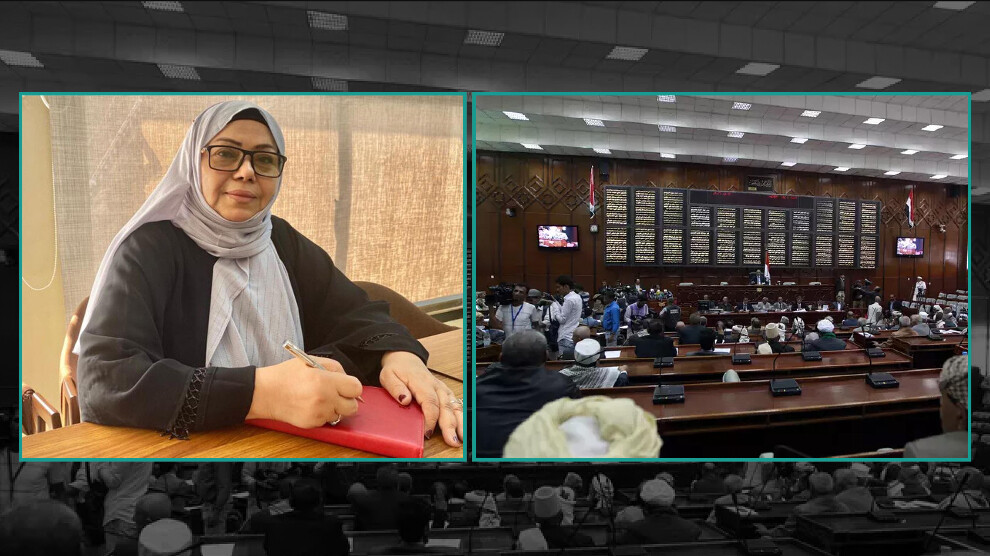Ikram Al-Aidarous: Women judges should be included in judicial decision-making positions
Judge Ikram Al-Aidarous underlines that women judges should be included in judicial decision-making positions in Yemen.

Underlining that women judges should participate in judicial decision-making positions, Yemeni judge Ikram Al-Aidarous thinks that the deprivation of women judges from training opportunities is an obstacle to enabling them to build their capabilities in the judiciary.
NOOR SURIB
Yemen- Hamida Zakariya Esma'il was appointed as a judge at the Court of Assizes, in Aden in 1971 and her appointment made her the first woman judge in the Arab world. She had a law degree from Cairo University and in 1970 worked at the South Yemen Ministry of Justice as a legal counselor. Judge Ikram Al-Aidarous, the Technical Office of the Supreme Court and a member of the Yemeni Women’s Accord for Peace and Security, told NuJINHA that women in South Yemen played a role in the judiciary in the early 70s and were able to leave an important impression in the judiciary.
Speaking about the powers vested in women judges in Yemen, Ikram Al-Aidarous said, “Yemeni women, who are appointed as judges, perform their duties in accordance with all the powers vested in judges in terms of considering disputes between parties and making judicial decisions about them.”
Obstacles and challenges
The report released by the United Nations Economic and Social Commission for Western Asia (ESCWA) in 2019 says “In Yemen, although women first entered the judiciary in the 1970s, there are currently only a few female judges serving on the bench. Prior to the country’s unification in 1990, half of the judges in South Yemen were women. Since then, conservative forces have pushed back against women’s presence in the judiciary and reassigned female judges to administrative and clerical roles.”
Talking about the obstacles facing female judges, Ikram Al-Aidarous said, “In the 1990s, Yemeni women began to face great obstacles in all spheres of life, particularly in the judiciary. The deprivation of female judges from training opportunities is an obstacle to enabling them to build their capabilities in the judiciary.”
“Female judges should be included in judicial decision-making positions”
In order to improve the conditions of female judges and empower them, Ikram Al-Aidarous said “Female judges should be included in judicial decision-making positions in accordance with the Convention on the Elimination of All Forms of Discrimination against Women (CEDAW) and the outcome of the National Dialogue process and the Prime Minister's decision of 2014 regarding women's participation in decision making positions (30 percent quota for women).”
